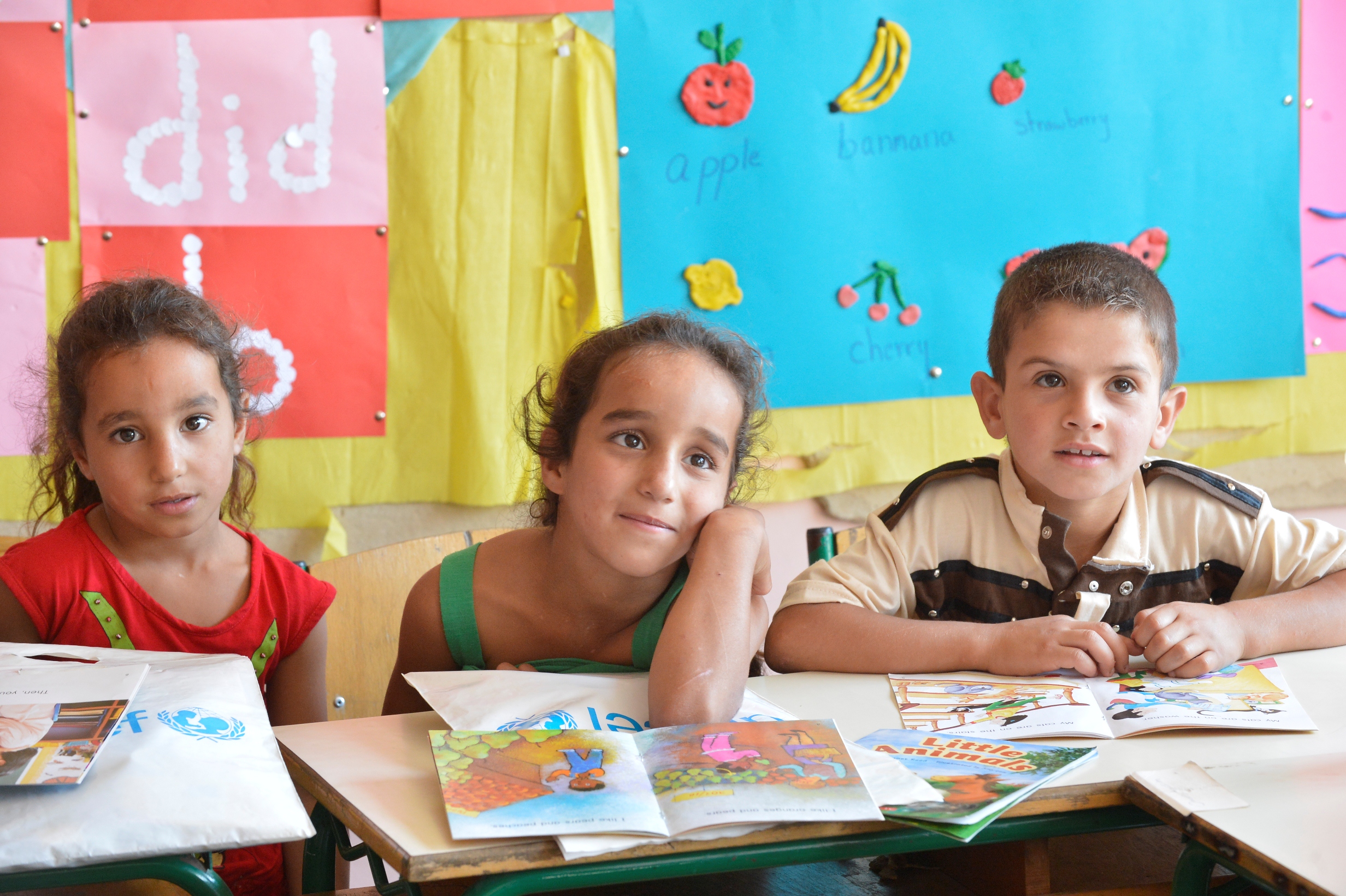 |
| Syrian refugees at school in Lebanon (Khaled) |
I have come to
understand the Syrian refugee crisis a little more this week through learning
about their civil war. Follow this link to read
a brief BBC article that sums up everything that’s happened since 2011 in 8
short chapters. Also, this article, here,
helped me better understand the overlapping conflicts in the Syrian war.
I am beginning
to realize the many problems that are rising, and will continue to rise, with
Syrian children not being in school. According to the UN, more than 2 million
refugee children are out of school (“Syria: The Story of the Conflict”). In
Lebanon, for example, 51 percent of registered refugees in the country are
under 18, and the majority of children face problems accessing education.
I couldn’t believe it when I learned that “only 20 percent of the registered
children [in Lebanon] are currently enrolled in school. Many more are not even
registered” (Khaled).
Language is one
of the biggest problems. The Syrian school system is run entirely in Arabic (Khaled).
Even if children have only moved across the border to Lebanon, they are already
required to know French or English to be taught math and science. All refugee
children who have flocked to Europe and over seas, of course, have the same
issue.
I know it is
complicated to get refugee children in school, but I think it is extremely
important for their future, and the future of their communities. Basic needs
like food, water, shelter, and health care need to come first, but then
education for children needs to quickly follow. According to the UN, four out
of five people in Syria live in poverty (“Syria: The Story of the Conflict”).
If kids who manage to safely leave and settle somewhere else can’t get into
school, they are unable to get the education they need to qualify for a decent job,
which means they will never make it out of poverty. It also means they’ll find
it harder to integrate into their new community. This will become a never-ending
cycle until all children can be taught the language of their new home and keep
moving in school.
College
students, like me, or anyone else who doesn’t have the means to donate
significantly to help refugees, can make a difference through giving their time
to helping local refugees learn English (or whatever your country's native language). I think we will have the greatest impact through helping in ways like this.
Works Cited
"Syria: The
Story of the Conflict.” BBC News. BBC, 3 Feb. 2016. Web. 04 Mar. 2016.
Khaled, Wadi.
"No School Today - Why Syrian Refugee Children Miss out on
Education." IRIN.
N.p., 08 Aug. 2012. Web. 04 Mar. 2016.



